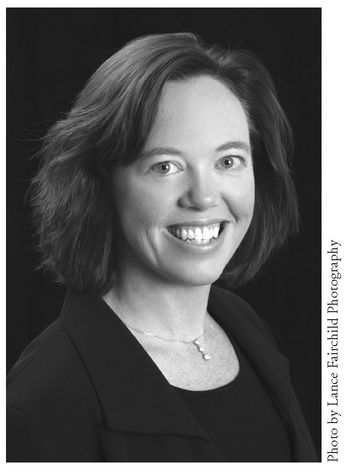One True Theory of Love (38 page)
Read One True Theory of Love Online
Authors: Laura Fitzgerald

He nodded. “Got it.”
Jonathan’s eyes were cool. “Let me know if you need me,” he said. “I’ve got your back.”
Just then, Ahmed caught sight of them. He looked from Meg to Jonathan to Henry, and then back to Jonathan again. The same blue eyes, same blond hair that curled at the ends, the same little forward curve of the shoulders. There was no mistaking they were father and son.
As Meg walked to Ahmed, his body was fighter-tense.
His fists were clenched.
His eyes were the flat surface of one very pissed-off lake.
This time when Ahmed turned and left her, Meg didn’t just close her eyes.
She went after him.

S
he caught up to him outside the market. “Ahmed!” She grabbed his arm. “Don’t be this way.”
he caught up to him outside the market. “Ahmed!” She grabbed his arm. “Don’t be this way.”
He jerked his arm back. There was a half second in which he nearly raised a hand to her in anger, but it turned into a point of accusation. “I have
one
question.”
one
question.”
He trapped her with his eyes, cornered her inescapably. Spewed hate. Meg found herself gripped with anger.
“If you’ve got a question, just ask it,” she said. “You don’t need to announce you’ve got one.”
When Ahmed dropped his mouth open, astounded by her flippancy, it angered Meg more. “Well?” she said. “Ask your question.”
“Were you planning to tell me?” He narrowed his eyes at her. “Or did you think I wouldn’t find out you two were seeing him?”
Meg narrowed her eyes back. “That’s actually two questions.”
Ahmed’s eyes widened. He had a bomb triggered, ready to detonate, and Meg could tell her taunts were not helping in his struggle to restrain himself.
Good,
she thought. It was about time he unleashed himself. Time he lived raw, which Meg was coming to think was the only worthwhile way to live.
Good,
she thought. It was about time he unleashed himself. Time he lived raw, which Meg was coming to think was the only worthwhile way to live.
“Maybe you should check your voice mail once in a while,” she said. “What were you doing that was so important you couldn’t call me back? I’ve been leaving you messages for five hours. I’m going through something important here, and you flaked on me. You let me down, Ahmed. I expect better from you.”
He blanched. Physically stumbled backward. “You left . . . ?” He shook everything, everything, out of his head. “I left my phone in my locker at the racquet club again.” He looked devastated. “You left a message?”
“About twenty.” Meg pulled her cell phone from her pocket and displayed the screen that showed the calls she’d made that day. It was littered with Ahmed’s name. She held the phone out to him. “Call your voice mail. Pick up your messages. You’ll see.”
He didn’t take the phone. “Oh God. Shit, Meg. I’m so sorry.” He covered his face with his hands and rubbed hard, as if to peel away his hateful thoughts. “I shouldn’t have doubted you. I should
not
have doubted you.”
not
have doubted you.”
“No,” Meg said. “You shouldn’t have. We both know Henry can’t keep a secret. Do you think I’d leave my fate in the hands of a nine-year-old and expect him not to blab to you that he’d met his father? I’m not trying to hide anything.”
There was an empty table to Ahmed’s left and he slipped into a seat, weakened. Depleted. Meg slid into the seat across from him. “I’m sorry,” he said. “I’m so, so sorry.”
“Apology accepted,” Meg said instantly. “Now buckle up. Jonathan came to town to ask me to get back together with him. To give it another shot. To see if we could get it right the second time around.”
Could this day get any worse?
was the question Meg saw in Ahmed’s eyes. She smiled to reassure him: it would only get better, as long as they were willing to work for it.
was the question Meg saw in Ahmed’s eyes. She smiled to reassure him: it would only get better, as long as they were willing to work for it.
“What did you tell him?” His face was a mixture of reluctance and hope.
“I told him that he’s my yesterday and you’re my forever,” she said.
Delighted, Ahmed reached to hold her hand. “For some reason, it sounds so much less sappy this time around.”
“I thought so, too.”
They fell into their teenage, dopey-grinning snow-globe bubble of love, and Meg knew everything would be okay between them—for now, and hopefully for a heck of a long time beyond now. For forever, if such a thing were possible.
The moment was broken by Henry, who flung himself at Ahmed and hugged him, and by Jonathan, who stood back and watched. Meg went to him.
“I’ve got to catch my flight,” he said.
Meg nodded at the man she used to love, at the man her boy would grow to love. “You’d like to stay in touch with Henry, I take it?”
Jonathan burst forth with the same smile she’d fallen in love with all those years ago. “He’s an awesome kid. You’ve done a remarkable job with him, Meg.”
Ahmed stood and joined them, a tricky feat with a nine-year-old boy smothering him with love. Jonathan extended his hand.
“Jonathan Clark,” he said. “Next time I’m in town, I’d like to buy you a cup of coffee. We have a few people in common and we should probably get to know each other.”
Ahmed shook Jonathan’s hand, and here, in this small corner of the world if nowhere else, men were shaking hands and meaning it.
“I’d like that,” he said. “I know a great little coffee shop we could go to.”
“He fell in love there,” Henry said. “With my mom.”

M
eg woke in terror that night from the same horrible nightmare, the one in which Henry disappeared into the ocean.
When will it stop?
she wondered, and knew the answer—never. This particular nightmare would go away, but life would bring others. The best you could hope for was to have someone in your life who knew you—who really, really knew you and loved you in all your complexity and in spite of all your flaws. Someone who’d support you so you wouldn’t be alone as you struggled to survive your nightmares.
eg woke in terror that night from the same horrible nightmare, the one in which Henry disappeared into the ocean.
When will it stop?
she wondered, and knew the answer—never. This particular nightmare would go away, but life would bring others. The best you could hope for was to have someone in your life who knew you—who really, really knew you and loved you in all your complexity and in spite of all your flaws. Someone who’d support you so you wouldn’t be alone as you struggled to survive your nightmares.
She got up and made herself a cup of warm milk and honey, and then she called Ahmed, even though it was three o’clock in the morning.
“I keep having these nightmares,” she said when he answered.
“Do you want me to come over?” he asked.
“I don’t think so,” Meg said. “I just wanted to hear your voice. To know I’m not alone in the world tonight.”
She told him about the nightmare, and then she told him more about Jonathan’s visit. She told him how she’d finally deposited the hundred-thousand-dollar check from Jonathan and how she was going to buy back her father’s baseball-card collection from a dealer in town. She’d tracked him down earlier that day, and the collection was mostly intact, with the exception of a few cards he’d sold online. He’d been confident he could find some Pete Rose cards for her, too.
“I want to buy a present for you, too,” she said. “I just don’t know what. Tickets to Venice?”
“Don’t buy me anything,” he said. “Write me a letter, instead.”
“Really?” Meg was delighted by the request. Letter writing was such a lost art. “You want me to write you a love letter?”
“Write anything you want,” he urged her. “Tell me a story. Tell me what’s in your heart and on your mind. Make it the letter of a lifetime, and sprinkle it with your fairy dust.”
After they hung up, Meg pulled out her rose-colored linen stationery from her little secretary desk and the nicest pen she could find and made herself a cup of tea and dimmed the lights and set herself up at the dining room table.
Before she began, she checked on Henry and found him smiling in his sleep. She straightened his covers to protect him from the night chill and kissed his forehead and whispered an I love you, hoping he’d hear it all the way into his dreams.
Back at the dining room table, she lit a candle. She sat, blew on her tea, and wondered how to start.
Write anything you want,
he’d said.
he’d said.
Meg thought of her mother and her father and their broken-down marriage, of furniture salesmen and women with beehive hairdos. She thought of Lucas and Marita—the comfort he’d brought her and the don’t-run stone she’d passed onto him. She thought of Henry and Violet and the secret place they went to. She thought of their kiss, and of Jonathan’s advice to Henry:
Be as good to her as you can possibly be.
She thought of Amy and David and chocolate raspberry mousse cake and scribbling poetry on laundry room walls and of honoring one’s dark side. She thought of Amy’s advice:
Men don’t want you to have a past. They want to believe your life started the moment you met them.
Be as good to her as you can possibly be.
She thought of Amy and David and chocolate raspberry mousse cake and scribbling poetry on laundry room walls and of honoring one’s dark side. She thought of Amy’s advice:
Men don’t want you to have a past. They want to believe your life started the moment you met them.
In a way, Meg felt her life
had
begun—again—the moment she met Ahmed at LuLu’s that one Saturday morning. But she did have a past, and it was something to be honored, not denied.
had
begun—again—the moment she met Ahmed at LuLu’s that one Saturday morning. But she did have a past, and it was something to be honored, not denied.
It took Meg a long while to come up with her opening line—beginnings could be so hard. As could middles. As could endings.
Sometimes it seemed that
everything
was so hard.
everything
was so hard.
But just because something was hard didn’t mean it wasn’t worthwhile. Easy was for wimps, not for people like them.
Dear Ahmed,
she finally began. And then she smiled.
It’s easy to look at men and think they’re idiots.
she finally began. And then she smiled.
It’s easy to look at men and think they’re idiots.

Laura Fitzgerald
is also the author of
Veil of Roses
(Bantam, January 2007). A native of Wisconsin, she lives in Arizona with her husband, who is of Iranian descent, and their two children. Her favorite part of being an author is interacting with readers and attending book clubs by phone and in person. She can be reached through her Web site at
www.laurafitzgerald.com
.
is also the author of
Veil of Roses
(Bantam, January 2007). A native of Wisconsin, she lives in Arizona with her husband, who is of Iranian descent, and their two children. Her favorite part of being an author is interacting with readers and attending book clubs by phone and in person. She can be reached through her Web site at
www.laurafitzgerald.com
.
One True
THEORY
of
LOVE
of
LOVE
LAURA FITZGERALD
A CONVERSATION WITH LAURA FITZGERALD
Q. Tell us how you came to write
One True Theory of Love.
One True Theory of Love.
A. Second chances can be times of great reinvention, or they can be total hell, and they don’t bring with them the guarantee of a happy ending. At its heart,
One True Theory of Love
is a story about second chances and the courage they require.
One True Theory of Love
is a story about second chances and the courage they require.
I got the idea for the novel when I was in Wisconsin visiting book club members who’d read my first novel,
Veil of Roses.
As I got to know the women over the course of a few hours, I was struck by how many were in the midst of major life changes: divorces, new relationships, retirements, job switches, kids finally out of the house, deaths of loved ones. People can respond to such changes passively or actively, and those who experience them actively ultimately ask themselves:
Well, who am I going to be now?
Veil of Roses.
As I got to know the women over the course of a few hours, I was struck by how many were in the midst of major life changes: divorces, new relationships, retirements, job switches, kids finally out of the house, deaths of loved ones. People can respond to such changes passively or actively, and those who experience them actively ultimately ask themselves:
Well, who am I going to be now?
That becomes the central question Meg faces as she decides whether or not to pursue a relationship with Ahmed.
Q.
One True Theory of Love
can be described as a romance, but it’s unlike most romances in that the focus isn’t just on the couple but also on the other people who have a stake in the success or failure of the relationship. Why did you choose to explore the romance from this different perspective?
One True Theory of Love
can be described as a romance, but it’s unlike most romances in that the focus isn’t just on the couple but also on the other people who have a stake in the success or failure of the relationship. Why did you choose to explore the romance from this different perspective?
A. I guess because Ahmed isn’t the goal for Meg. Instead, he’s her reward—if and only if she can become the bold and openhearted person she truly wants to be. To do that, she needs to honor her past, deal with her fears and insecurities, value the complexity of other people as well as herself, and finally—no small feat—she must summon the courage to take a leap of faith, knowing she may or may not get her happy ending.
Other books
Manly Wade Wellman - Novel 1953 by The Last Mammoth (v1.1)
Secrets in the Shadows by T. L. Haddix
Remembering You by Tricia Goyer
China Dog by Judy Fong Bates
Giving It Up for the Gods by Kryssie Fortune
Girl, Undressed: On Stripping in New York City by Ruth Fowler
Deserves to Die by Lisa Jackson
Miras Last by Erin Elliott
Sleeping Angel (Ravenwood Series) by Mia James
Being Neighborly by Carey Heywood